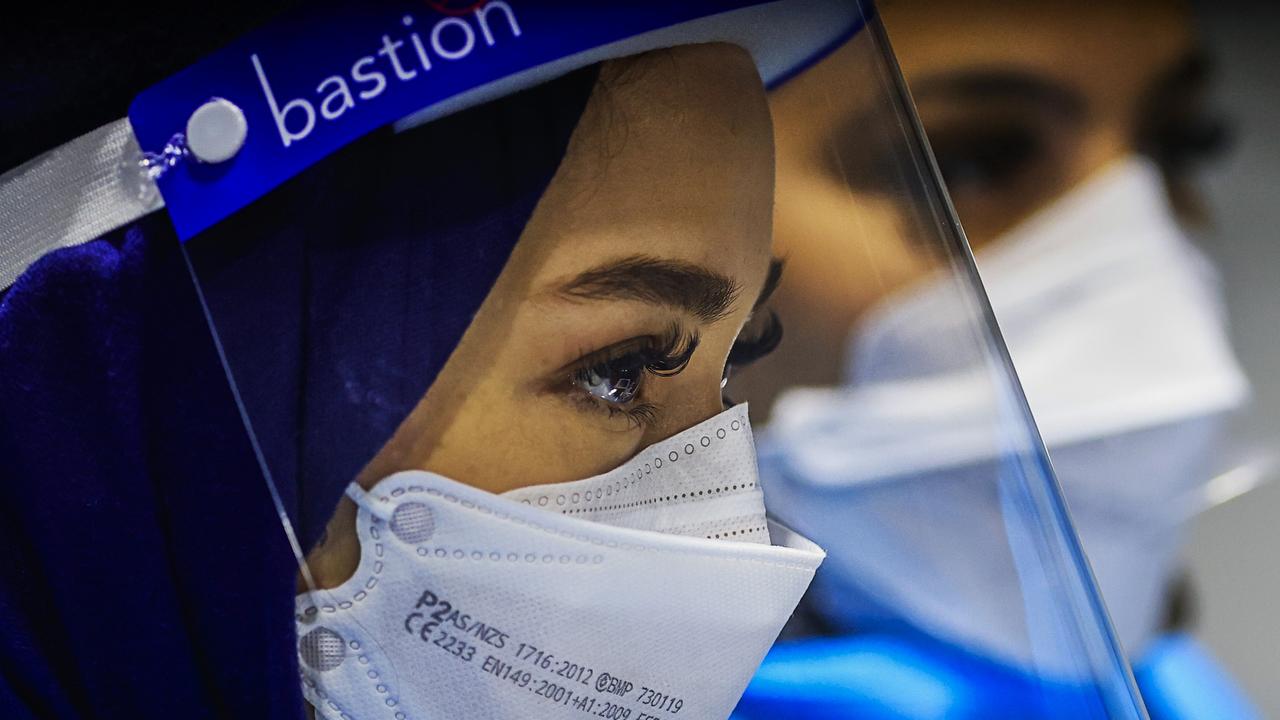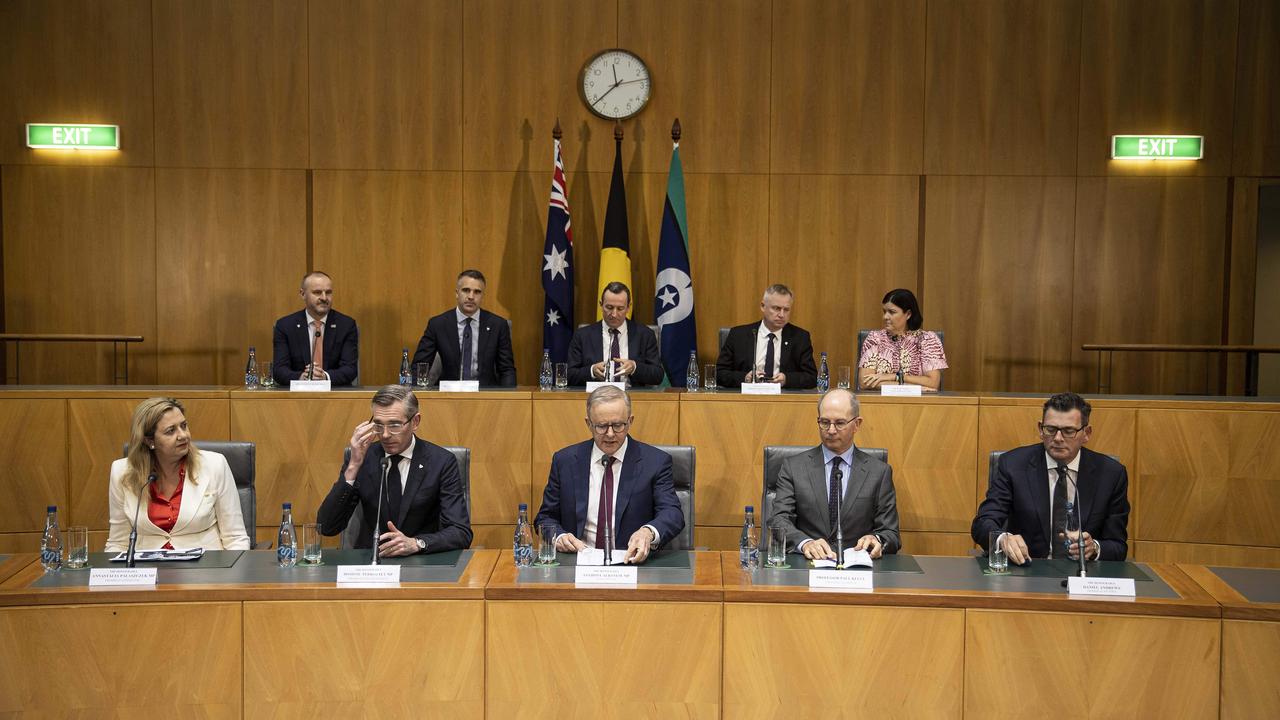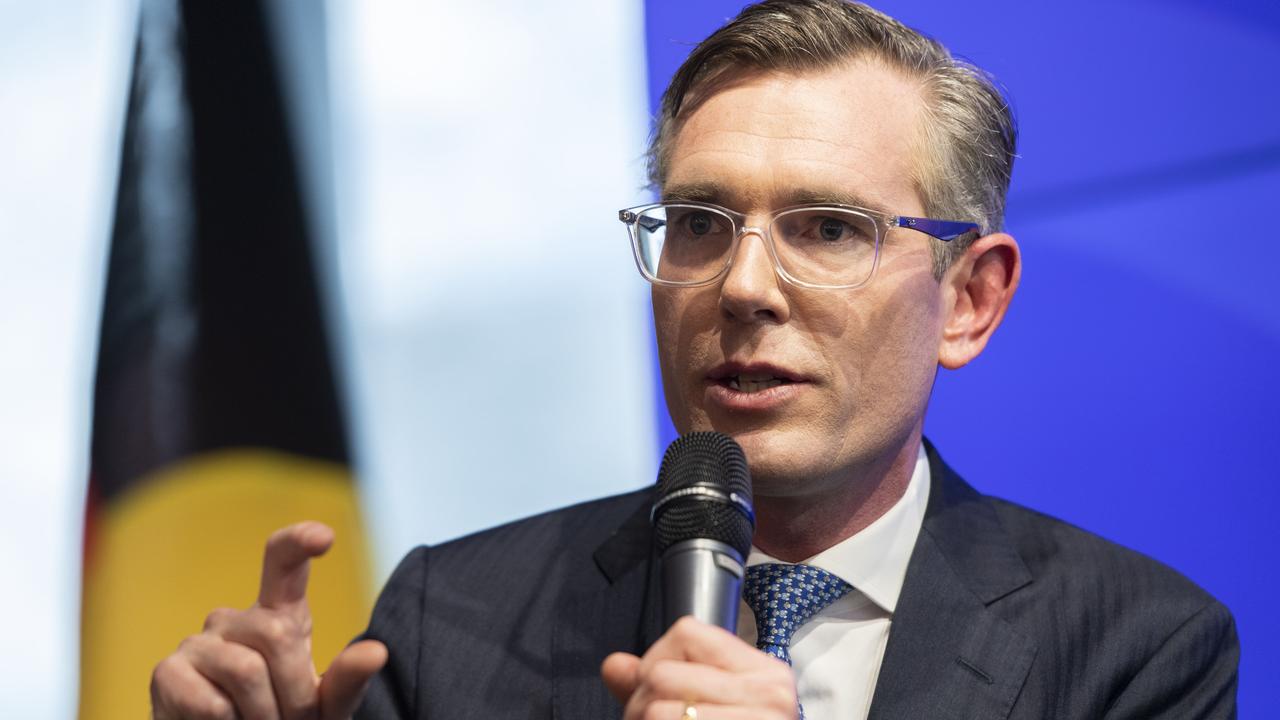Australia scraps mandatory Covid isolation rules from October 14, despite health warnings
Aussie leaders have agreed to ditch one of the most hated Covid rules – despite experts warning we’re headed for a period of “significant risk”.
Australia has agreed to scrap mandatory Covid isolation rules after a national cabinet meeting despite warnings from doctors that there are risks.
Mandatory isolation and pandemic leave disaster payments will be axed on October 14, after state and territory leaders reached an agreement this morning.
Prime Minister Anthony Albanese also confirmed pandemic payments for people without sick leave will also end unless you work in aged care or other specific settings.
“The pandemic leave disaster payments will end at that time as well, (October 14) with the exception of people in high-risk settings, which need to be given particular support,’’ Mr Albanese said.
“So, aged care, health care, the measures, disability care, the areas that have
been previously identified.”
Interestingly, the decision was not taken to the Australian Health Protection Principal Committee that includes state health chief medical officers.
The decision was taken only after advice was provided by the national chief medical officer directly to the Prime Minister and national cabinet.
Earlier today the Victorian CMO Professor Brett Sutton cryptically tweeted “sleepwalking into COVID is not a strategy I would recommend. Still much remains uncertain.”
Stream more on politics with Flash. 25+ news channels in 1 place. New to Flash? Try 1 month free. Offer ends 31 October, 2022 >

Australia’s chief medical officer Professor Paul Kelly said if isolation needed to be reviewed in the future in the event of new variants emerging it would be discussed at the time.
“It does not in any way suggest that the pandemic is finished,’’ Professor Kelly said.
“We will almost certainly see future peaks of the virus into the future, as we have seen earlier in this year.
“However, at the moment, we have very low rates of both cases,
hospitalisations, intensive care admissions, aged-care outbreaks. The does not mean we have somehow magically changed the infectiousness of this virus. It is still infectious.”
Victorian Premier Dan Andrews said the state premiers had discussed the way forward overnight and confirmed he was open to dumping the requirement based on health advice.
“We have to normalise this, treat it like every other respiratory illness,’’ Mr Andrews said.
“But you’ve got to do that based on advice and that’s what today’s meeting is all about.”

Queensland Premier Annastacia Palaszczuk said political leaders needed to be mindful of what was around the corner, but suggested most Australians were now on the same page around normalising arrangements.
Tasmanian Premier Jeremy Rockliff said he would also back the change if it was supported by the country’s chief medical officer Paul Kelly.
“In Tasmania we have always taken the best of public health advice including national advice, of course, and look forward to the discussions today,” Mr Rockliff said.
But Australian Medical Association president Steve Robson said the rush to abandon mandatory isolation could put the public at risk.
“We’re seeing overseas a huge upswing in the numbers of Covid cases again,” Dr Robson told the ABC.
“It’s coming into the holiday season when people will be travelling around the world. We think it’s a period of significant risk and we’re urging caution because we need to protect the health system and we need to protect vulnerable people.”
Mr Perrottet, who has led the charge for change, stressed that national consistency was the key.
“It has been over 900 days where we have had these public health orders in place, and I think this is the natural step,’’ he said.
“We made significant inroads as a country, we have a consistently balanced public health with broader health issues, mental health and particularly young kids. We have to balance that with the financial and economic impacts of these public health orders.
“But ultimately we also need to get to this position where people look out for each other, that we care for each other, and that we make sure if we’re sick we stay at home without there being a public health order in place.”

Scrapping mandatory isolation will bring Australia into line with the United Kingdom, which no longer requires an isolation period for workers.
National cabinet recently agreed to reduce the mandatory isolation period in Australia from seven days to five days.
Strict limits were also imposed on how many times you can claim the $540 pandemic leave payment after it emerged that some workers claimed to have contracted Covid four times or more to secure the cash.
Under the new rules you will only be able to claim pandemic pay three times before your entitlement runs out.
Aussies are entitled to claim $450 if they lose at least eight and fewer than 20 hours of work as a result of being forced into Covid isolation, and $540 if they lose 20 hours or more of work.
Both the Victorian and NSW Premiers are united that pandemic leave payments should stay in place for as long as Covid-19 isolation is compulsory.
In August, the national cabinet agreed that the mandated Covid-19 isolation period will be reduced from seven days to five days.
That meant the payment was slashed from $750 to $450 for the majority of eligible workers.
The decision, which came into force on September 9, does not apply to “vulnerable settings” which means, for example, that aged care workers may need to stay home for seven days.




